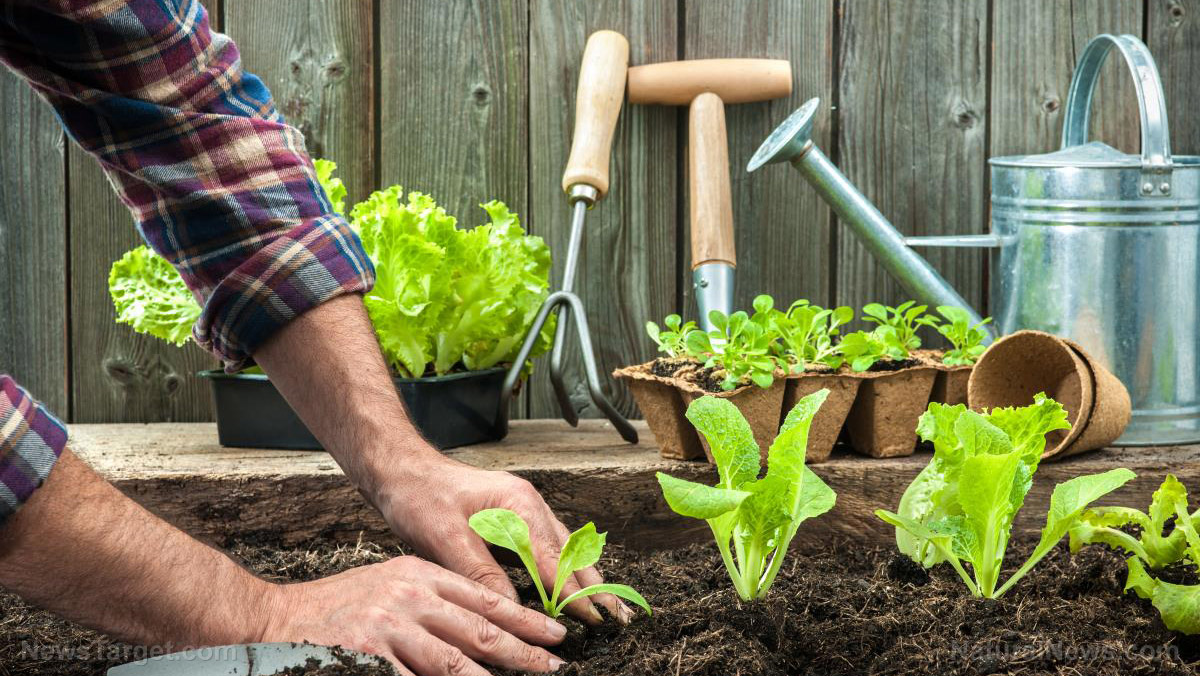
If you want to be a homesteader, the first thing you need to do isn't to purchase land. Before you start any homesteading projects, you must plan ahead and learn essential prepping skills to ensure that your homestead thrives. (h/t to HomesteadSurvivalSite.com)
If you're a prepping beginner, follow the 10 tips detailed below to set up a homestead that's worth your time and effort.
Design a detailed plan for your homestead
Get an aerial photo of your land for a detailed overview of your entire property. Study this image to review the natural resources and terrain that you will live in when you set up your homestead.
Regardless of the size, a properly planned homestead can have a garden and livestock-raising area.
Incorporate these crucial homestead components in your blueprint:
- Your home
- Fuel source
- Gardening areas – For growing fruits and vegetables and medicinal herbs and plants.
- Livestock area – Includes a barn, coops, hutches, and pens.
- Livestock grazing areas and hayfields – For large livestock.
- Water source
- Workshop and storage shed
When looking for a property, try to find locations near a natural water source. This is highly recommended if you want to bug in at your homestead when SHTF.
Assess your homesteading and prepping skills
Honestly assess your homesteading skills. Rank your current skills on a scale of one to five. Doing this helps you determine which projects aren't worth your time and effort, especially if you lack the skills necessary to complete them.
Your assessment should cover the following skills:
- Alternative Energy
- Butchering
- Carpentry
- First aid
- Fishing
- Gardening
- Herbal medicine
- Hunting
- Livestock first aid
- Mechanical repairs
- Operating heavy machinery (e.g., backhoes and tractors, etc.)
- Poultry farming
- Raising livestock
- Standard home repairs
- Water Filtration
If any of your skills rank less than five, prioritize the mastery of these skills. These basic homesteading skills aren't mandatory as you set up your homestead, but learning them can help you maximize your property's potential. (Related: Knowledge is power: 31 Crucial skills for every homesteader.)
Set clear goals
Starting a homestead can be overwhelming, but you can keep things manageable by setting your goals for the first year and another set of goals for the following four years.
If you're not sure where to start, consider the four basics of homesteading on a small scale. Gradually expand your efforts after the first year as your skill level increases.
- Raise small or medium livestock like chickens or goats. This combination of animals gives you access to fresh eggs, meat, and milk without the need for a large investment.
- If you're new to gardening, start with a small plot.
- Use gardening techniques like raised beds or containers to your advantage. Some methods help cut down on weeding while others eliminate the need for tilling altogether.
- In your first year, plant dwarf or standard fruit trees to start making an orchard for the coming years.
Chop, split, and stockpile enough wood so you can cook and heat your home when SHTF. You also need to set up a rainwater catchment system to ensure that you have access to a backup water supply.
Test your soil quality
To grow crops in your garden, you need quality soil. Test soil quality and learn how to make a compost pile to ensure a bountiful harvest for every crop.
Making your own compost prevents food waste and produces crops free from harmful chemicals in store-bought compost.
Learn about the climate in your area
Learn about the best times to plant certain crops and which plants must be grown indoors or in a greenhouse.
Grow fresh vegetables in your garden
Cultivate fresh veggies and crops that easy to grow with a high nutrient and calorie content. Preserve these "prepper crops" using methods such as canning or dehydration to complement your long-term survival stockpile.
Grow crops that your family likes to eat. Take note that the average male adult requires between 2,000 to 2,500 calories daily while females need at least 1,500 to 1,800 calories per day. You may need to consume more calories if you plan on maintaining your homestead during a survival scenario.
Listed below are nutritious, high-calorie crops for your survival garden:
- Barley
- Carrots
- Corn
- Green beans
- Oats
- Lentils
- Parsnips
- Peas
- Pinto beans
- Potatoes
- Rice – Grow rice along creek beds or the shallow edges of a pond.
- Sorghum
- Sugar beets
- Summer squash
- Sweet potatoes
- Yams
- Zucchini
Don't be wasteful
Recycle or repurpose everything to make the most of every purchase. Buy second-hand or use scrap materials in your homestead to save money.
Be frugal
Living within your means ensures that you can set aside enough funds to cover emergencies in your homestead. If you have excess crops, sell them at a farmers market.
Be adaptable and learn how to improvise
Even with all your planning, you can't predict everything that might happen in your homestead. Knowing how to improvise when SHTF can help save you a lot of headaches, unlike if you force yourself to stick to a very rigid schedule.
Don't be afraid to ask for help.
While homesteaders value self-sufficiency, the community also doesn't mind spreading their knowledge to those willing to learn and improve. Consult fellow homesteaders in your area and pay it forward to ensure that other beginners who follow in your footsteps can count on your help when they need it most.
Plan ahead and learn the necessary skills to ensure that your own homestead thrives. Homesteading requires a lot of hard work, but this way of life is also incredibly rewarding.
Sources include:
Please contact us for more information.



















